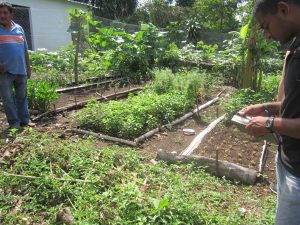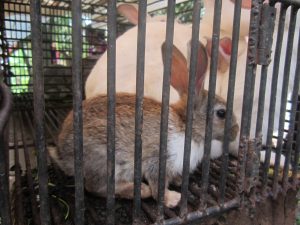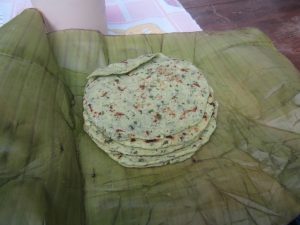
A day in tropical Chocola
On Tuesday, our study abroad group spent the day in the tropical, rural city of Chocola. The bumpy dirt roads and the endless fields of coffee plants eventually led us to our first stop: the small community of Pedrocito. Led by our guides Suzanne and Earl, we toured three homes which belonged to members of Semilla para el Futuro, “Seeds for the Future,” an organization which seeks to empower communities by giving them the knowledge to grow their own food and the power to manage their nutrition. Families were introduced––and reintroduced to––several varieties of nutrient-dense greens, which they grow in plant boxes, repurposed plastic bottles and even boxed wine containers. The greens have to be relatively easy to maintain, have a good flavor and have a noticeable, positive impact on their health. Avocados, lettuce and onions were just some of the varieties planted in the homes.
What the families were most proud of, however, was their newest source of protein: rabbit. Each of the homes we visited had recently received and/or purchased several rabbits, which many said were the envy of the neighborhood. Although many Guatemalans consider rabbits to be pets, Suzanne explained that rabbit used to be a staple food in certain regions until they were hunted to extinction. Seeds for the Future hopes this reintroduction will allow people to have a different type of protein in their diet, as well as provide them with a new source of fertilizer for their plants. One woman told me that she planned on selling some of her rabbits because many of her neighbors expressed an interest in raising their own. I am interested whether other Guatemalans would be as accepting of eating rabbit, since the current norm is keeping them as pets.
It was such a great experience being able to talk to members of the community about what brings them happiness. Although the needs in Chocola were different (access to dignified medical care was a big issue), everyone essentially seemed to have the same wishes: a tightly-knit community, good health and opportunities for the future.




